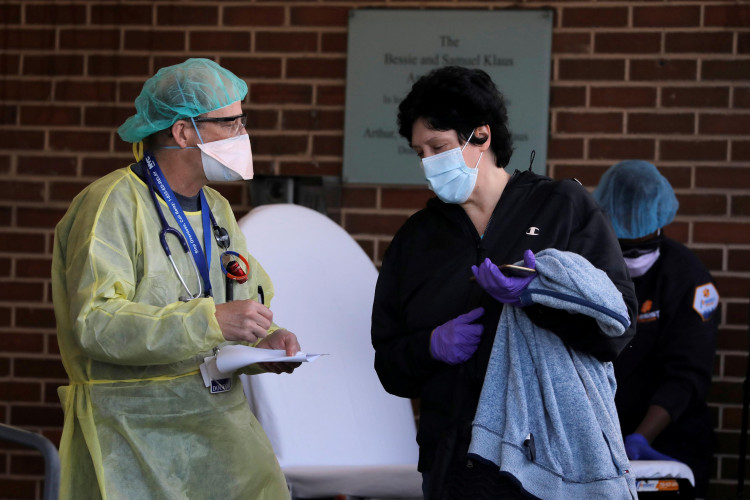AT&T will offer three months of free cellular coverage to medical frontliners fighting the coronavirus pandemic around the United States, an act of generosity from the US communications giant during the global health turmoil.
The company announced the offering with the help of John Krasinski on his YouTube "Some Good News," series, which he unveiled two weeks ago as a way to give inspiring stories.
As part of the deal, those on the frontlines of the crisis will be able to access the free service as long as they are on one of the first responder plans of AT&T's FirstNet. The offer is available to all government-licensed physicians and doctors, irrespective of whether they are new or current FirstNet users.
FirstNet was developed on the basis of the 9/11 Commission Guidelines for first responders to strengthen coordination for the public safety community. This involves first responders in health care, law enforcement, and firefighters as well as 911 communicators and emergency coordinators and leaders.
The network puts premium on voice and data for the first responders round the clock. It is a VIP lane for communications on public safety. Regardless of how heavy a network use is, first responder calls and data are processed first on FirstNet.
In the episode on Sunday, Krasinski and former Red Sox slugger David Ortiz surprised five medical staff in the coronavirus unit at the Beth Israel Deaconess hospital in Boston with a field trip to Fenway Park, where they threw out the "first pitch" of the 2020 Major League Baseball season.
AT&T has expanded the network nationally, including adding portable sites around identified virus hotbeds, like New York, to improve capability and allow FirstNet systems to be faster compared to conventional AT&T phones.
The announcement is the latest from a telco to extend assistance during the crisis. Verizon revealed last month that it would offer its customers extra high-speed data and hotspot data for its clients, while AT&T added more hotspot data to its unlimited plans for both.
Similarly, T-Mobile disclosed in March that it would make all plans on its network, including the older ones, available for 60 days during the outbreak.
AT&T also gets a boost from its wireless activities. Last year, the company gained around 40 percent of its operating profits from its mobility division, and wireless services continue to be sticky during times of calamity, even though customers are less likely to update their phones or opt for fancy plans.
The telco also provides home-internet access, another option that will be fairly robust as customers adapt to longer domestic time periods.






